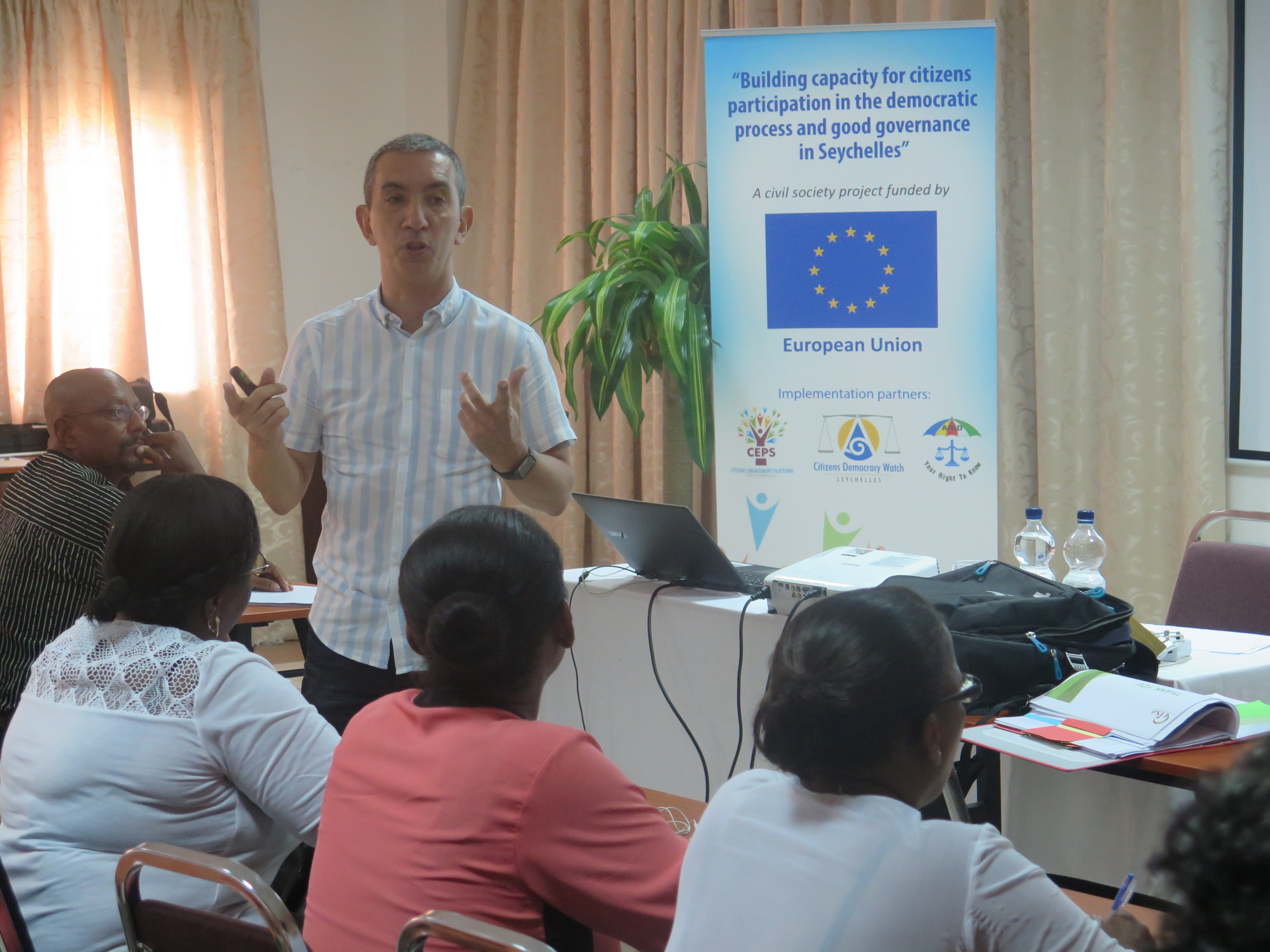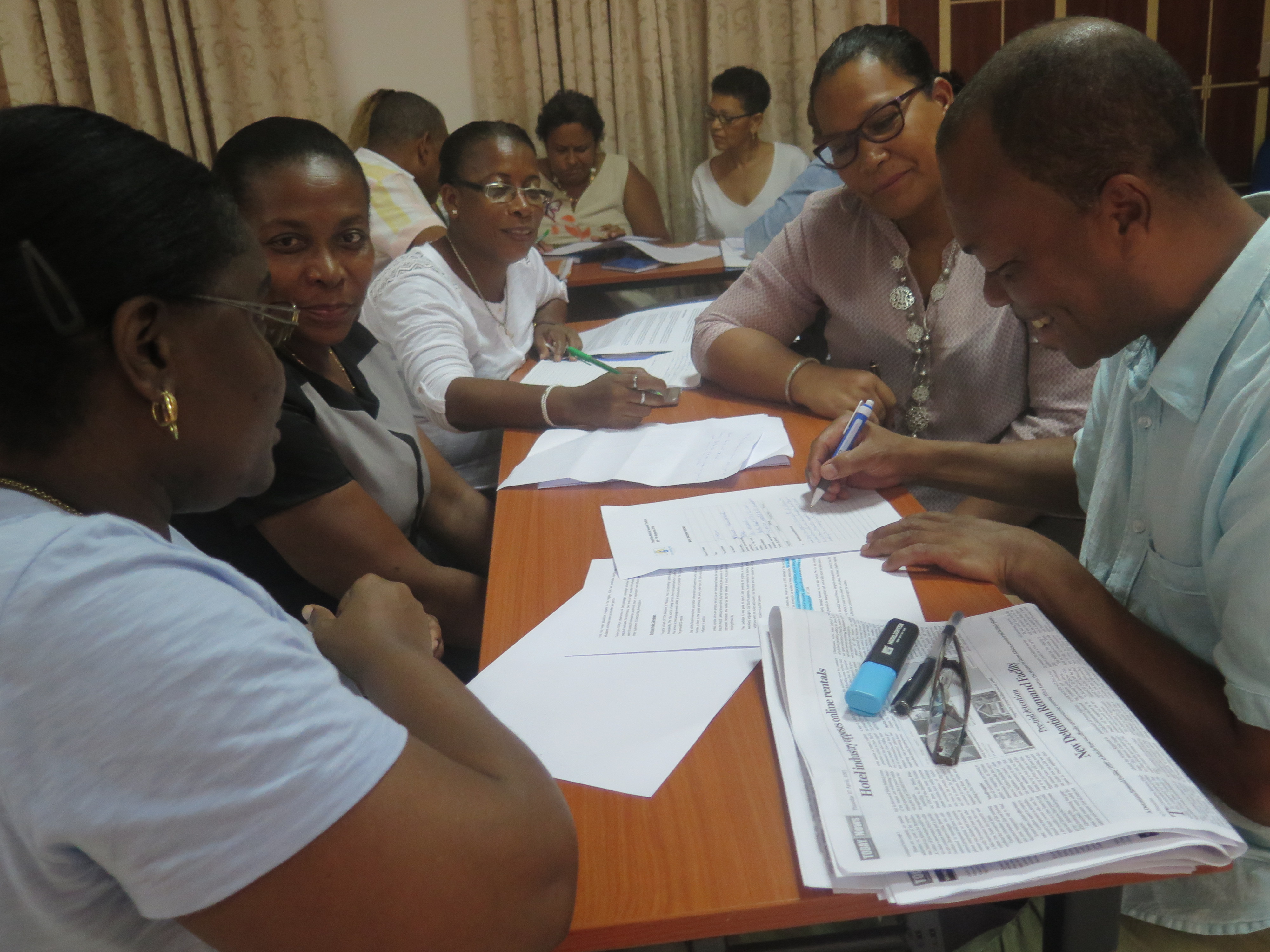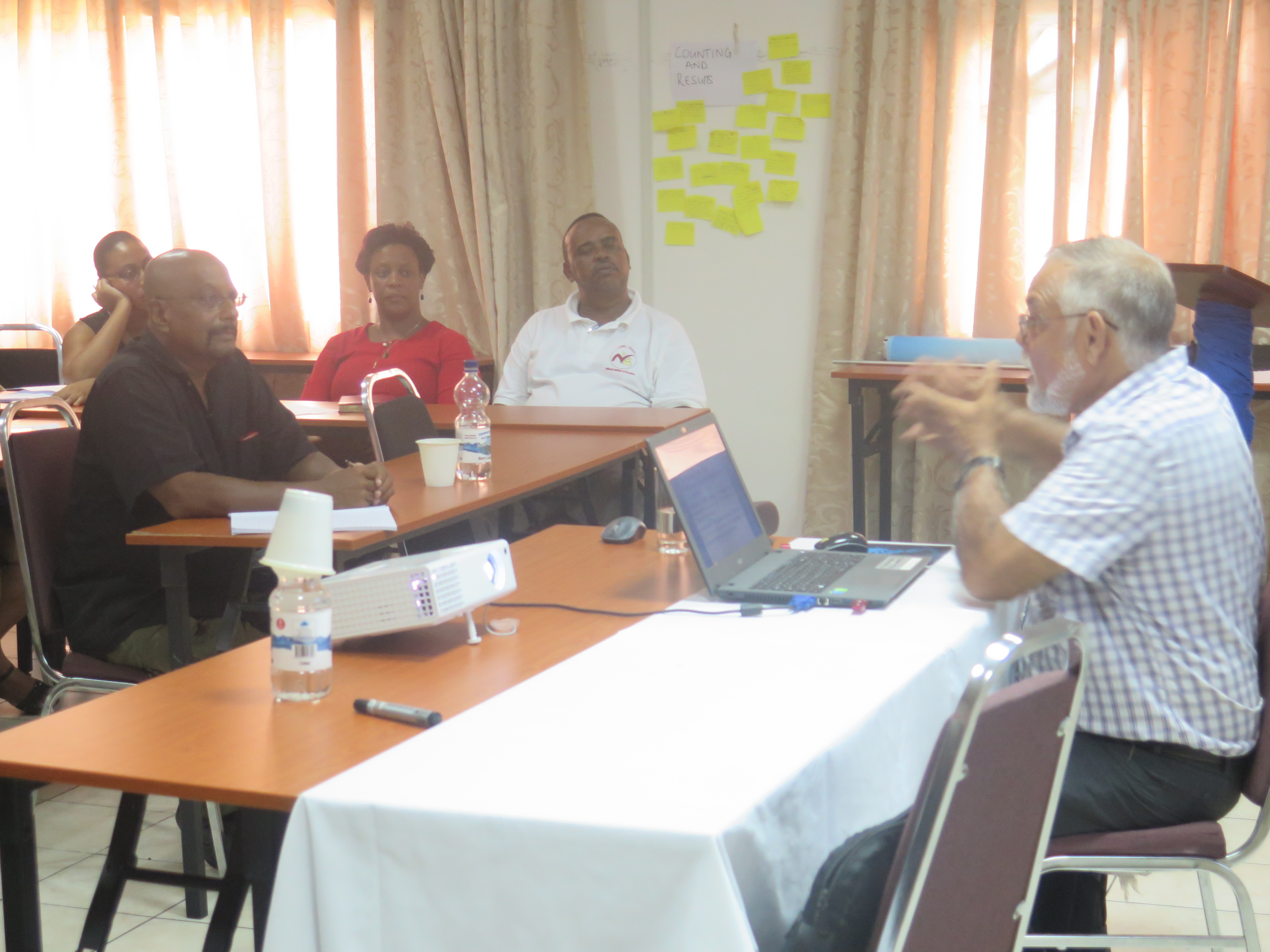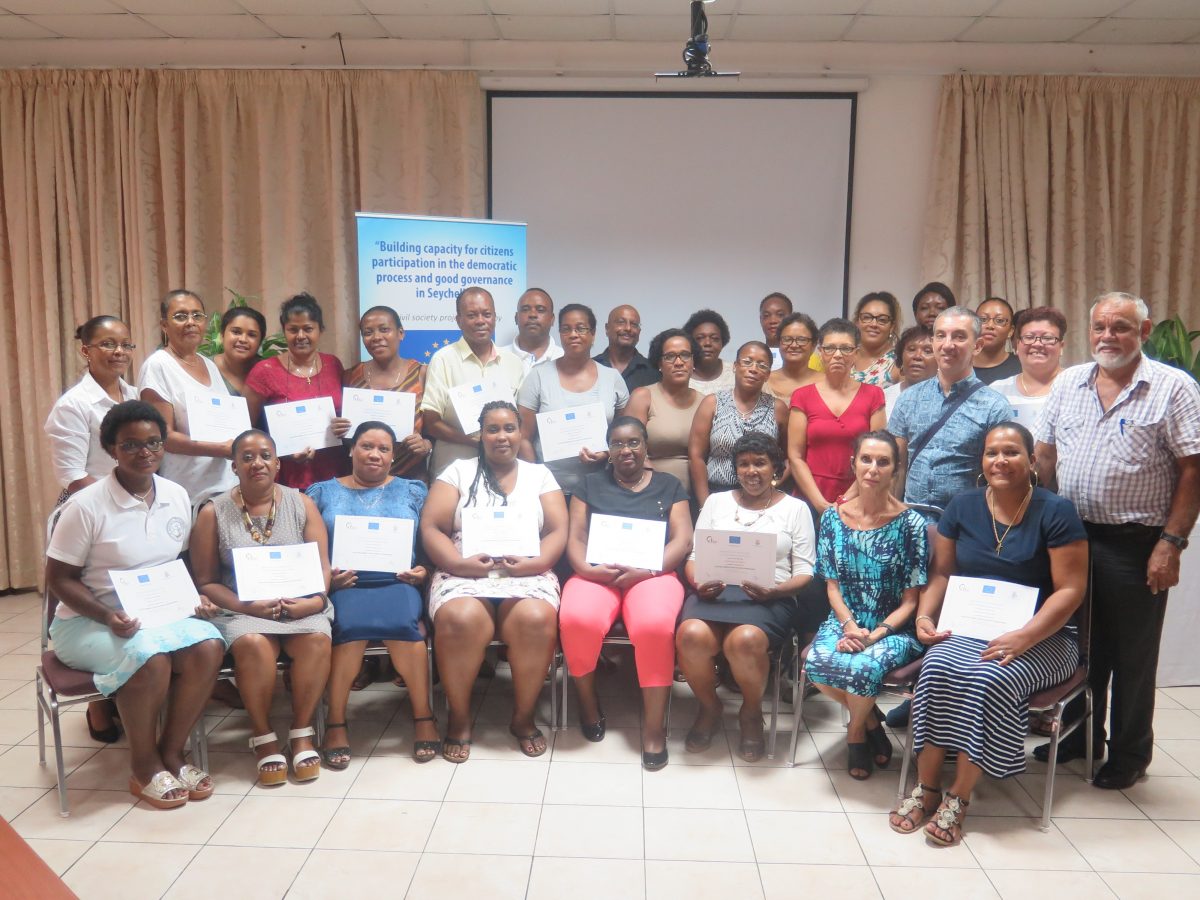Over 30 citizens are now certified election observers, following a training held as part of the CEPS’ civil education project funded by the European Union (EU).
The participants came from different walks of life and indicated in their introductions that they either wished to become more acquainted with the electoral process or play a more active role as citizens during the process.
The training was facilitated by two representatives from the Electoral Institute for Sustainable Democracy in Africa (EISA), a non-profit organisation, with which CEPS has maintained good relations over the years.
As part of the introduction to the training, participants were informed of the concepts of democracy and elections, and the link between both notions. From this session, participants are now able to define the concepts of democracy and elections, identify key indicators of democracy, and assimilate what democratic elections are while being able to describe the role of elections in democracy.
 For the introduction on election itself, participants were taught how to recognize that elections and election observation are conducted within specific benchmarks and standards at both national and international level.
For the introduction on election itself, participants were taught how to recognize that elections and election observation are conducted within specific benchmarks and standards at both national and international level.
Part of the training also familiarized participants with the concept of “electoral cycle. From a series of presentations, participants were able to develop an understanding that elections are a continuous processes, rather than a once-off event. They were given skills that will enable them to identify the different phases of the electoral cycle.
As part of the training participants were given a comprehensive overview of citizen election observation. Participants were able to develop a common understanding of election observation and, in particular, citizen election observation as a form of election assessment. From this session participants were able to recognize the different types of election assessment. Participants were also equipped with tools that will help them identify the differences between citizen observation and other forms of election observation, whilst gaining an understanding of the purpose of citizen observation.
The three day training also allowed participants to be informed about the roles and responsibilities of citizen observers within the electoral cycle. This session sought to acquaint participants with the know how to conduct credible and effective citizen election. From this session, participants were also equipped with the necessary skills and knowledge to conduct an effective election observation.
A key element of the training was a session on election reporting. It enabled participants to understand the importance of reporting in election observation. The aim of this session was to acquaint participants with report formats reporting skills.
When discussing election day, two elements were given particular attention and these included observation and reporting.Participants were acquainted with election-day checklists and were taught how to recognize what to observe on Election day, especially when in the field. A key component of the training involved building the participant’s capacity to identify the practical and ethical implications of the work of citizen observers in the field.
On the final day of the three day training, Election Commissioner, Mr Bitty Hoareau gave an interesting presentation on the functions of the Seychelles electoral Commissions as well as the act which guides the commissions work.
Now that they are trained, participants now have the option of joining the two observer groups currently accredited to observe elections or to join CEPS whenever the platform is invited to send observers to elections at national,m regional and international level.
At the end of the training, all participants received a certificate of participation.


